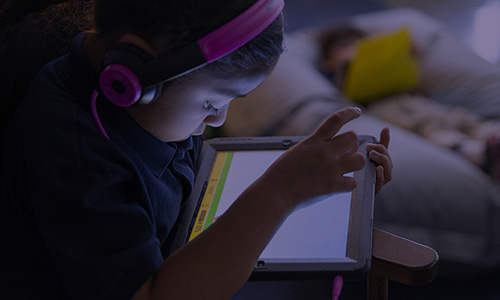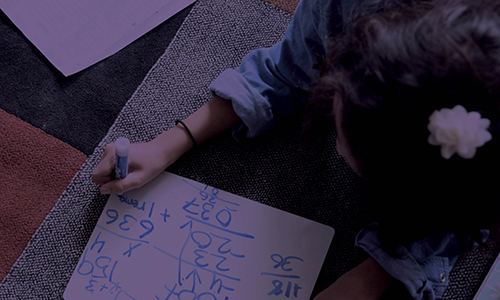Early learning
What children learn in early years provides a crucial foundation for their future academic success. But it is sometimes challenging to measure patterns in achievement and growth for young learners when different assessments are used across time or places. This research explores academic achievement and growth, and new approaches to measurement, for early learners.


The lasting benefits of preschool
The Wall Street Journal‘s Susan Pinker reports on new research examining the extent to which the benefits of pre-K education persist through kindergarten.
Mentions: Erik Ruzek, Arya Ansari, Robert Pianta, Jessica Whittaker, Virginia Vitiello
Topics: Early learning


Preparing early learners: Considerations for supporting the kindergarten class of 2021
Among the many ways in which schools are being transformed by the COVID-19 pandemic, the change in kindergarten enrollment is likely to have important consequences in classrooms across the nation. Because the academic and nonacademic skills students develop in their preschool and early elementary school years are foundational to important longer-term outcomes, understanding these changes and finding ways to effectively support our youngest students’ learning is critical for educators and leaders. Drawing on recent research, we offer four timely considerations for district, school, and classroom leaders.
By: Beth Tarasawa, Angela Johnson, Christine Yankel
Topics: Equity, COVID-19 & schools, Early learning


Family perceptions of participating in a structured summer kindergarten transition program
Researchers interviewed parents whose children participated in a three-week structured kindergarten transition program designed to promote parental involvement in school, reduce students’ chronic absenteeism, and increase children’s readiness for kindergarten. Interviewees expressed that participating in the program yielded benefits for themselves and their children, and proposed various ways that adjusting the program could better meet the needs of all stakeholders. Parent suggestions were synthesized into multiple implications for practice and substantiated by current relevant literature.
By: Christopher Merideth, Beth Cavanaugh, Sue Romas, Nicole Ralston, Eva Arias, Beth Tarasawa, Jacqueline Waggoner
Topics: Early learning, Empowering educators


Using data from the Applied Problems subtest of the Woodcock-Johnson Tests of Achievement administered to 1,364 children from the National Institute of Child Health and Human Development (NICHD) Study of Early Childcare and Youth Development (SECCYD), this study measures children’s mastery of three numeric competencies (counting, concrete representational arithmetic and abstract arithmetic operations) at 54 months of age.
By: Pamela Davis-Kean, Thurston Domina, Megan Kuhfeld, Alexa Ellis, Elizabeth Gershoff
Topics: College & career readiness, Early learning, Math & STEM


Achievement growth in K-8 Catholic schools using NWEA data
Using a national sample of kindergarten to eighth grade students from Catholic and public schools who took MAP Growth assessments, we examine achievement growth over time between sectors.
By: Julie Dallavis, Megan Kuhfeld, Beth Tarasawa, Stephen Ponisciak
Topics: Early learning, Middle school


Pathways of mathematics achievement in preschool: Examining executive function and task orientation
This study used longitudinal data from a sample of 467 preschoolers to examine (1) if children’s executive function (EF) skills at the beginning of pre-K predict growth in their mathematics achievement across the pre-K year, (2) whether growth in learning behaviors, specifically task orientation, mediate the associations between EF and mathematics achievement, and (3) if there are sex differences in these associations.
By: Tara Hofkens, Jessica Whittaker, Robert Pianta, Virginia Vitiello, Erik Ruzek, Arya Ansari
Topics: Early learning, Math & STEM


COVID-19 in the early elementary years: A comparison of achievement in spring 2019 and spring 2022
New NWEA research provides further evidence of the challenges that young learners are currently facing from the disruptions of the COVID-19 pandemic.
By: Megan Kuhfeld, Karyn Lewis
Topics: COVID-19 & schools, Early learning, Equity


